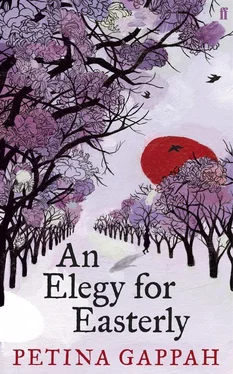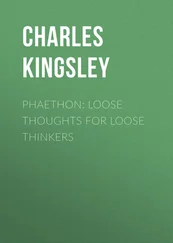Petina Gappah - An Elegy for Easterly
Здесь есть возможность читать онлайн «Petina Gappah - An Elegy for Easterly» весь текст электронной книги совершенно бесплатно (целиком полную версию без сокращений). В некоторых случаях можно слушать аудио, скачать через торрент в формате fb2 и присутствует краткое содержание. Год выпуска: 2009, Издательство: Faber & Faber, Жанр: Современная проза, на английском языке. Описание произведения, (предисловие) а так же отзывы посетителей доступны на портале библиотеки ЛибКат.
- Название:An Elegy for Easterly
- Автор:
- Издательство:Faber & Faber
- Жанр:
- Год:2009
- ISBN:нет данных
- Рейтинг книги:4 / 5. Голосов: 1
-
Избранное:Добавить в избранное
- Отзывы:
-
Ваша оценка:
- 80
- 1
- 2
- 3
- 4
- 5
An Elegy for Easterly: краткое содержание, описание и аннотация
Предлагаем к чтению аннотацию, описание, краткое содержание или предисловие (зависит от того, что написал сам автор книги «An Elegy for Easterly»). Если вы не нашли необходимую информацию о книге — напишите в комментариях, мы постараемся отыскать её.
An Elegy for Easterly — читать онлайн бесплатно полную книгу (весь текст) целиком
Ниже представлен текст книги, разбитый по страницам. Система сохранения места последней прочитанной страницы, позволяет с удобством читать онлайн бесплатно книгу «An Elegy for Easterly», без необходимости каждый раз заново искать на чём Вы остановились. Поставьте закладку, и сможете в любой момент перейти на страницу, на которой закончили чтение.
Интервал:
Закладка:
It is true; FirstYearGirl sleeps in Emily’s old room on P.
‘Don’t believe everything you hear,’ Emily says. ‘It happened on Q corridor.’ She says this to be kind, but the next time that FirstYearGirl sees Emily, it is with knowledge in her eyes. The Emma Girl from Law of legend has become the in-the-flesh Emily walking towards her. She moves to the other side and walks past Emily without meeting her eyes.
Among the whispers and the pointing, Emily moves as the incarnation of the walking mad. Though she relearns how to be normal, there is incontrovertible evidence that the true lesson of her experience is lost on her: she falls in love again, just as carelessly, almost as excessively, this time with a rugby-playing Economics student known to everyone but his mother as Tuggs. ‘I like you babes, I really do,’ Tuggs says, ‘but this can’t go on, you know that. What if you go all crazy on me like you did with that guy from Engines?’ This rejection is the first of many post-Gwinyai heartbreaks; but she learns this: no heartbreak will ever again be sharp enough to send her over the edge and to the Annexe.
Each heartbreak is a little death, all the same.

Up and down she goes in the little green bus, always sitting on the right so that she looks out at the golf course and not at the Annexe opposite. In her drawer with her diary and fevered poems, she keeps Ezekiel’s picture of the Taj Mahal. In her final year at university, she is three-quarters of the way from the Annexe and a quarter of the distance from Oxford. There is nothing to do but celebrate the end of exams, the approach of Christmas, going home, the unwritten future.
It is Friday evening, and she is with Fadz and Sihle and Kenny and Lindy buying mushroom burgers at Chicken Inn. They will tumble into Fadz’s battered Beetle and go on to a night of clubbing at Circus. They have been drinking vodka, and they laugh at the smallest thing. She comes out onto Inez Terrace, in mid-laugh, and there, holding a box of fried chicken is Ezekiel. His smile is wide as he moves towards her. He says something, a greeting, but all she hears is, ‘Abraham, Abraham,’ as up and down goes the little green bus. She turns away. He sees her pretending and she sees him seeing. She pretends not to see the shadow that falls across his face.
Something Nice from London
The little boy in the orange shirt tells me that his grandmother says that his mummy is bringing him something nice from London. ‘Your mummy will bring you something nice from London too,’ he asserts, with all the gravity of a child whose concerns coincide with those of the world. He runs off before I can reply, and I watch him tear up and down the observation platform that overlooks the arrival hall of our airport. The Chinese built this airport when the old one became too small for the tourists that poured into the country in their thousands. No tourists visit us now. Our almost total isolation means that we have no camera-toting, free-spending visitors to pour dollars and pounds, euros, yen and yuan into our empty coffers. We have an international airport in name only; the twice-weekly flight to and from London provides the only direct link we have to the world beyond our continent.
We wait for the Friday morning flight from London, as I stand with my mother, my brother Jonathan and his wife Mukai, and watch through the transparent glass of the observation platform. Our sombre faces are out of place, surrounded by those that smile in anticipation, with mouths that laugh and fingers that point out to children, there they are, there she is, he is here at last; they arrived on time. My mother stares unseeing at the passengers below us who crane their necks to look up at the platform, anxious to catch a glimpse of a familiar face, arms waving and jangling with bracelets, faces broad with smiles. They have made an effort for the flight, the women in manicured wigs and weaves, their England clothes fitting well, their skin lightened by years, and maybe even by just as little as six months of living out of the heat and stress of poverty. Those receiving them have also made an effort, or maybe it is not such an effort. They will have been happy to put aside their quiet desperation to wear the shining joy of welcome. For these passengers bring with them more than their loved selves, they bring something nice from London, the foreign money that will be traded on the black market and guarantee a few more months of survival.
We wait two hours before Jonathan confirms with the airline that Peter is not on the flight. The flight from Johannesburg arrives next, and we resign ourselves to returning home. We exchange no words as we walk back to the car park; my mother between Jonathan and Mukai, and me two steps behind. The car radio bursts into life as soon as Jonathan starts the engine. A voice reminds us that the land is ours, it will not be taken from us again; the country will never be a colony again. The message is repeated three times in the twenty minutes that it takes Jonathan to drive us home. In between the repeated message there are songs of histrionic patriotism, including one that I have not heard before in which the singer extols the President as a direct descendant of Christ and implores the Almighty to grant long life to him, to his wife and to all his children.

As Jonathan winds into the open gate to the driveway of our garden, the women gathered in the front of the house see us and begin a persistent keening. They are echoed by more women who pour out of the house, jumping in little paroxysms of grief. They cry out, ‘Peter woye, nhai Peter, Peter kani , Peter, Peter, Peter, Peter.’ They tear the air with a thousand Peters, each one a crescendo building onto the next. My paternal aunt Mai Lisa outdoes them all as she hops first on one leg, then the other, bends low from her waist, raises herself and puts her hands on her head and wails with her face to the sky, tears streaming from her eyes as underarm sweat dampens the light-coloured fabric of her dress. She nearly fells my mother as she embraces her. She almost knocked me over yesterday, so when I see her propelling herself towards me, I head off and envelop myself in the keening of the collected family daughters-in-law. They are the official criers, and they begin the ritual chanting and invocation of Peter’s name.
‘We will not see him again, uhuu .’
‘Why have you left us, oh my father, yuwi ?’
‘You have left us alone, and bereft, yuwi .’
‘Regard your mother, she is bereft and inconsolable.’
‘You are too cruel, Peter, come back Peter, kani .’
‘Who shall care for us now that you have left, uhuu ?’
The men of the family follow behind, maintaining a distance from this rigorous mourning, this business of women. The sound of grieving tears the air until the moment is over and they want to know what happened.
‘Peter’s body did not arrive,’ Jonathan explains.
This does not satisfy the relatives, and the questions remain. Mai Lisa is silent now that explanations are required. She had passed on the message from her daughter Lisa in England, Peter is coming home, she said. Now that Peter is not here, and we want to know what happened, she discovers that she is needed in the kitchen and is now commanding the family daughters-in-law. Their non-agnatic status in the family means that not only are theirs the lungs that provide the loudest mourning, theirs are also the hands that cook and clean at family gatherings. We can get nothing from her beyond ‘I know only what I have told you. Lisa is there. Why estimate the length of a snake using the bark of a tree when the creature is right there for you to measure?’
Читать дальшеИнтервал:
Закладка:
Похожие книги на «An Elegy for Easterly»
Представляем Вашему вниманию похожие книги на «An Elegy for Easterly» списком для выбора. Мы отобрали схожую по названию и смыслу литературу в надежде предоставить читателям больше вариантов отыскать новые, интересные, ещё непрочитанные произведения.
Обсуждение, отзывы о книге «An Elegy for Easterly» и просто собственные мнения читателей. Оставьте ваши комментарии, напишите, что Вы думаете о произведении, его смысле или главных героях. Укажите что конкретно понравилось, а что нет, и почему Вы так считаете.












